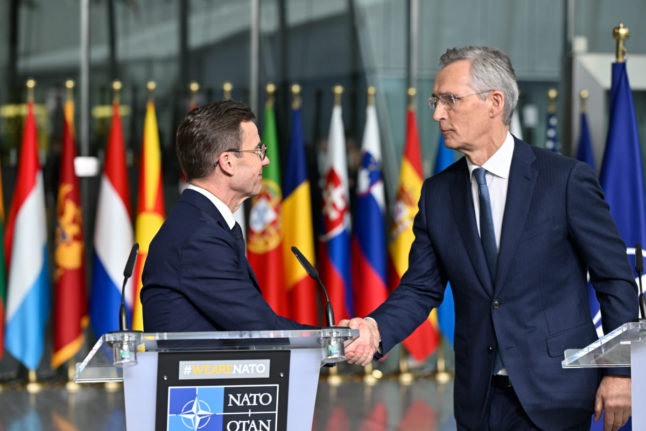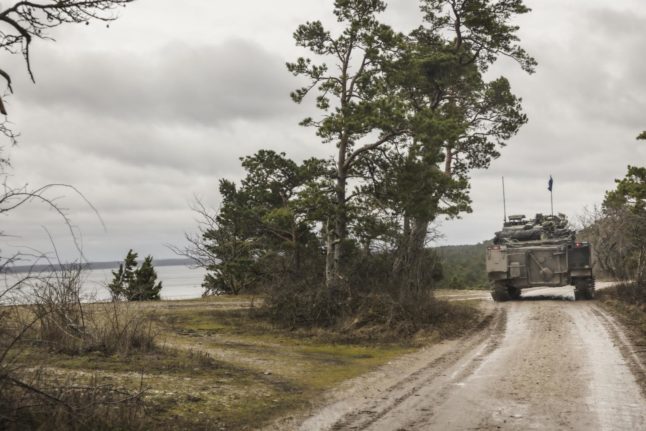The Kremlin’s invasion of Ukraine in 2022 not only prompted formerly non-aligned nations Sweden and Finland to come under Nato’s defence umbrella, but now “Ukraine is closer to Nato membership than ever before,” Stoltenberg said.
His comments, made next to Swedish Prime Minister Ulf Kristersson, came just before Sweden’s flag was run up a flagpole at Nato’s Brussels headquarters in a ceremony sealing Sweden becoming the alliance’s 32nd member country.
“When President Putin launched his full-scale invasion two years ago, he wanted less Nato and more control over his neighbours. He wanted to destroy Ukraine as a sovereign state, but he failed,” Stoltenberg said.
“Nato is bigger and stronger,” he said.
Finland joined Nato last year, swiftly after applying. Sweden’s adhesion took longer as Nato members Turkey and Hungary held up the process. But Ankara in January and Budapest last week finally gave their formal assent.
Shared ‘risks’
Sweden’s accession officially happened last Thursday in Washington, where Kristersson handed over the relevant documents at the US State Department. He then attended President Joe Biden’s State of the Union address.
Monday’s rain-slicked ceremony raising the Swedish flag outside Nato sealed the historic expansion in symbolic terms.
The flag – a yellow cross on a blue background – was hoisted between the ones for Spain and Turkey, in alphabetical order.
READ ALSO:
“Sweden’s accession shows again that Nato’s door remains open. No one can close it. Every nation has the right to choose its own path,” Stoltenberg said just before it went up.
In a joint media conference with Kristersson minutes earlier, Stoltenberg had admitted that he “didn’t expect” to see Finland and Sweden join during his time as the alliance’s secretary-general.
“Of course this changed totally with the full-scale invasion of Ukraine and since then things really moved very quickly.”
Kristersson said Sweden now “will share burdens, responsibilities – and risks – with our allies”.
“The security situation in our region has not been this serious since the Second World War, and Russia will stay a threat to Euro-Atlantic security for a foreseeable future,” he said.
For Russians, Putin has framed his 2022 all-out invasion of Ukraine as a defensive “special military operation” against an expanding Nato.
The member countries of the alliance have lent their military and financial support to Kyiv in its fightback.
But momentum is slowing as US political will fractures ahead of a November presidential election and as Europe struggles to meet the ammunition needs of an outgunned Ukraine.
Stoltenberg said a negotiated peace was possible for Ukraine – but only if Putin pulls his forces back.
“President Putin started this war and he could end it today. But Ukraine does not have this option. Surrender is not peace,” the Nato chief said.
“We must continue to strengthen Ukraine to show President Putin that he will not get what he wants on the battlefield, but must sit down and negotiate a solution.”



 Please whitelist us to continue reading.
Please whitelist us to continue reading.
Member comments